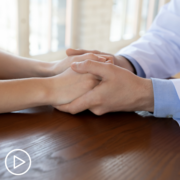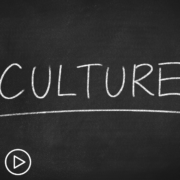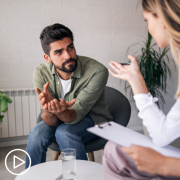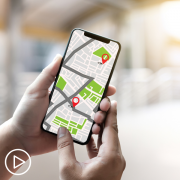How Can Cultural Competency Play a Role in Your Care?
How Can Cultural Competency Play a Role in Your Care? from Patient Empowerment Network on Vimeo.
Cultural competency, also known as cultural humility, can help provide better care. Dr. Nicole Rochester and Sasha Tanori discuss barriers to diagnosis and Sasha’s experience as a Mexican American patient in the healthcare system.
See More From Rx for Community Wellness
Related Resources:

|

|

|
Transcript:
Dr. Nicole Rochester:
Sasha, from your perspective, and you mentioned you’re a Mexican American, you mentioned that there were significant barriers for you in terms of getting a diagnosis, having to leave your community. So I love for you to share more about that, this idea of cultural humility, cultural sensitivity, and how that played out or maybe didn’t in your experiences with the healthcare system.
Sasha Tanori:
Yeah, I live in the lowest poverty line of California, so there’s not very much out there at all in my area. Just to get my diagnosis, like I said, I had to leave out of my community to go get the community…to go get the diagnosis. Sorry. And when I did that, it was…a lot of it had to also do with your…for me personally, it has to do with like generational. My father doesn’t believe in diagnosis, diagnoses, to him, it’s like every time I kept coming to him and complaining about this issue, he was just like, “Oh, you’re exaggerating.” Or it would be like the typical [passive], “You’ve got to go and put some Vicks on it, and you’re fine,” type of response, and I kept bugging him and bugging him, and he didn’t believe me, nobody believed me because it’s just such a…like I said, I live in a…what’s the word I’m thinking of, I’m sorry. I live in a community that they don’t take things like this seriously from Mexicans. If a white girl was to go to the hospital and say, “Hey, I’ve got bruises.” It’s like, “Okay, let’s do testing right away.” But I kept…and it is a lot of my generational, I think, trauma from my parents or from my dad mostly, that I didn’t even believe myself, it’s just like…
I kept putting it on the back burner. I kept thinking, “No, there’s nothing wrong. No, there’s nothing wrong. No, there’s nothing wrong.” And I wish that I would have advocated for myself a lot sooner. I wish that I would have taken my own problems more seriously because I didn’t…I didn’t think anything was wrong either. I just kept ignoring it, because that’s just how my mind was trained from my community, from my parents or my dad mostly, and finally, once I was able to… Once I started getting really, really serious, I still didn’t get the help, I needed it right away, it was now kept pushing it back on, “You need to lose weight,” or “You’re anemic,” or “You have this blood disorder, so take this medicine.’ Like nobody really took anything I was saying serious, because I also didn’t take it serious, my community doesn’t take it serious, my dad doesn’t take it serious, and that all just comes back to being Mexican. That’s just how it is when you’re Mexican, you don’t really take any of the serious issues serious, you go to work, and you take care of your family. And you put yourself on the back burner.
You put yourself last. And it was really hard. Yeah, but now that I’ve been through everything I’ve been through, I’m seriously, so passionate about making sure that people, especially Mexicans realize, “Hey, whatever you’re feeling, whatever you’re going through, whether it’s physical, emotional, mentally, it needs to come first, no matter what.”










